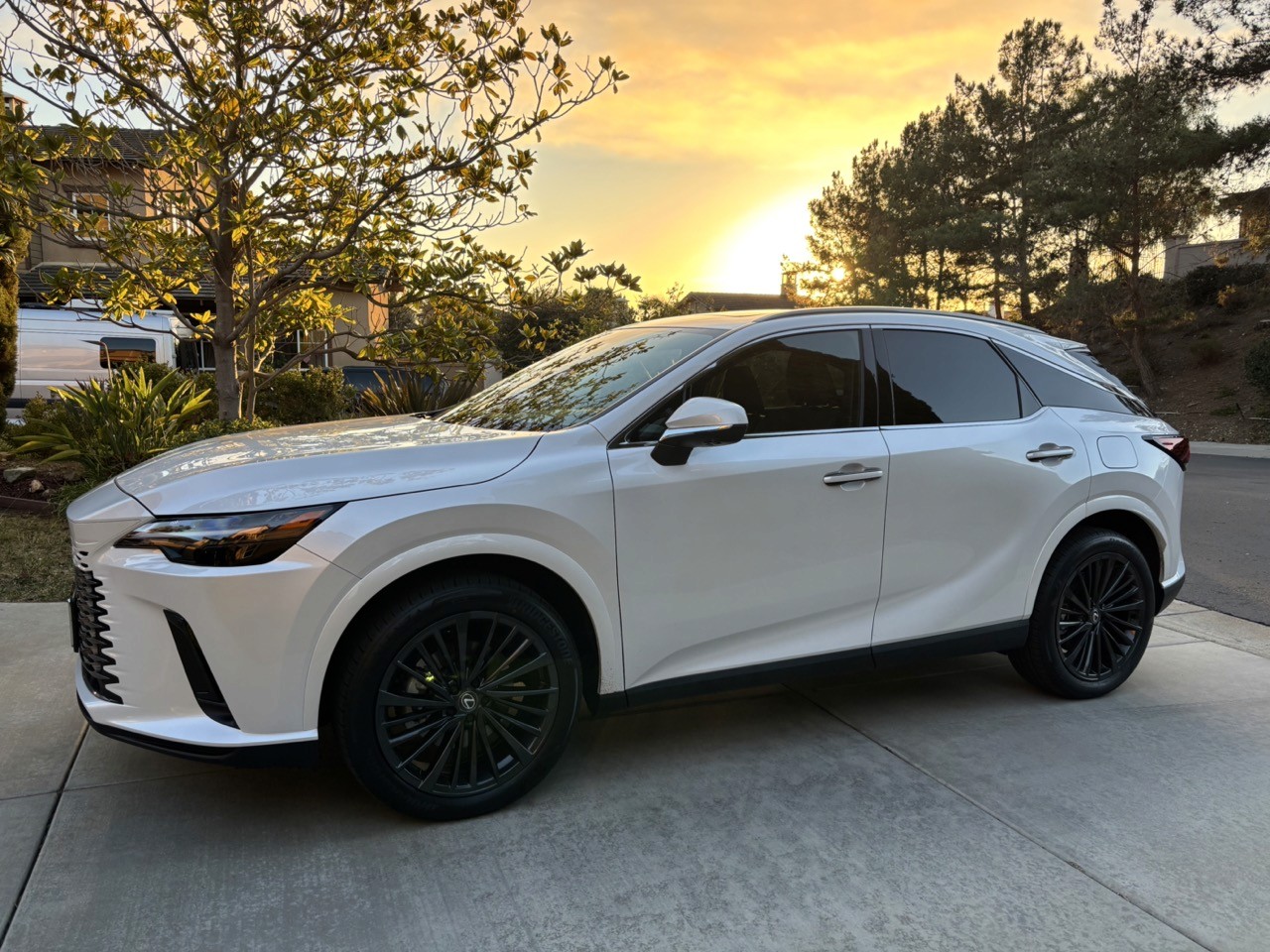Buying or Leasing in San Diego? Here’s What Smart Shoppers Are Doing in 2025
Written By
Lewis C. Smith
Published
Jun 7, 2025
Car buying in San Diego is more complex than ever. Learn why smart shoppers are choosing EV leases, avoiding used car traps, and relying on expert guidance.
The Hidden Cost of Too Many Choices
Ten years ago, buying a car meant choosing a brand, body style, and maybe a trim level. Today? It's far more complex.
Between new powertrains (gas, hybrid, PHEV, EV), federal and state incentives, range considerations, software packages, and lease vs. finance structures, the number of meaningful combinations now reaches well into the hundreds — even within a single model. Some EVs come in rear-wheel or dual-motor all-wheel drive. Others offer standard and extended battery packs. And that’s before you’ve considered whether it qualifies for a federal rebate or if your utility offers a charger installation credit.
It’s no surprise that nearly four in ten new-car buyers, report regretting their purchase, citing confusion over model choice, financing terms, or overall deal structure.
The bottom line? Most people aren’t buying the wrong car — they’re just making uninformed trade-offs without realizing it.
San Diego Is Ground Zero for This Shift
If you're in San Diego, the stakes are even higher—and the opportunity clearer.
Gasoline costs in San Diego County average about $4.86 per gallon—roughly $1.75 higher than the national average of $3.14.
Electricity rates for residential customers are in the ballpark of 38 ¢/kWh, although TOU (time-of-use) plans mean off-peak rates drop to ~16 ¢/kWh and even less overnight.
That makes a big difference when comparing energy costs:
A typical EV consumes around 0.3 kWh/mile—so at 16 ¢/kWh, that’s roughly 5 ¢ per mile.
A gas car getting 25 MPG at $4.86/gal costs $0.194 per mile in fuel.
Put simply: EVs cost about four times less to “fuel” if you charge on an off-peak electricity plan—and San Diego’s mild climate means heating or cooling rarely impacts range as much as in extreme-weather areas.

Why EV Leases Are Taking Over — and Why the Math Works
As of June 2025, the following lease deals are available through SanDiegoLeaseDeals.com:
BMW i4 eDrive40: $476/mo+ tax, $3,000 due at signing, 36 month, 7,500 miles per year
Acura A-Spec AWD: $300/mo + tax, $3,000 due at signing, 24 month, 10,000 miles per year
Chevrolet Equinox EV 2LT: $210/mo + tax, $3,000 due at signing, 24 month, 10,000 miles per year
These aren't stripped-down base models — they’re competitive, tech-equipped vehicles with full factory warranties. And they’re priced lower than many gasoline SUVs with comparable features.
Why? Because most EV leases apply the $7,500 federal credit directly, reducing your cost upfront. It’s not about politics — it’s about math.
Why Buying Used Isn’t Always Safer
Used cars have traditionally been a go-to for budget-conscious shoppers. But in today’s market, they carry more risk than many realize.
Prices for 3- to 6-year-old vehicles remain elevated. And perhaps more critically, the service history behind those vehicles is often a black box.
Modern vehicles have moved from 3,000-mile oil changes to 10,000-mile intervals. Transmissions are now labeled “lifetime fill,” which often translates to “never maintained.” As we noted in CarOracle’s fluid service guide, neglecting fluid changes quietly accelerates wear — and the buyer inherits those consequences.
Even a single overlooked maintenance item can turn a “deal” into a $4,000 repair. Buying used in 2025 often means assuming someone else’s deferred maintenance.
What About Costco Auto or Autoland?
These services aim to simplify the process — and for some buyers, they do. The Costco Auto Program, for example, offers pre-negotiated pricing and access to a vetted dealer network.
But as we broke down in this article on the Costco Auto Program, it’s a solid choice only if you value convenience over control. You don’t get much room to negotiate, and you still have to handle your own financing, trade-in, and timing. The pricing is decent — but not always the best available.
Similarly, Autoland, offered by many credit unions, wraps everything into a package but gives you little transparency into how the deal is structured.
These aren’t scams. But they also aren’t designed to help you make the smartest decision — they’re designed to make the process faster for the average buyer.
What Smart San Diego Shoppers Are Actually Doing
The savviest local buyers are leaning into representation.
CarOracle clients, for instance, aren’t just asking, “Can you get me a good deal?” They’re saying:
“Here’s what I care about — help me find the right vehicle and structure it intelligently.”
That means:
Getting real-time insight into which models are leasing well this month
Comparing multiple trims, powertrains, and incentives with guidance
Understanding when to trade in and how to do it strategically
Structuring a lease or finance deal in a way that leaves room for a buyout if desired
It’s not just a price game — it’s a strategy game. And that’s where having a real advocate pays off.
Quick Take: What to Know Before You Shop
EVs make more sense here than almost anywhere else — range holds, fuel costs favor them, and the deals are strong.
Used cars aren’t the safety net they once were — especially if you’re inheriting someone’s maintenance neglect.
Programs like Costco and Autoland are fine — but they aren’t personalized.
Representation is the real advantage. The system isn’t built to guide you; it’s built to move volume.
If you’re overwhelmed by choices, you're not alone. That’s where working with someone who studies the market daily — and works for you — can be the best investment you make.















